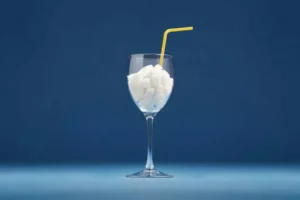Update on the Neurobiology of Alcohol Withdrawal Seizures

Increasing interest is expressed in the potential of gabapentin as a treatment for alcohol withdrawal (74–78) and of topiramate in alcohol dependence (79). Alcohol withdrawal seizures are one of the most serious and potentially life-threatening complications of alcohol withdrawal. These seizures typically occur when an individual abruptly stops or significantly reduces heavy alcohol consumption. Alcohol withdrawal seizures are a serious medical emergency requiring immediate attention and professional care.

Do you have a loved one struggling with addiction?
Individuals with a history of epilepsy are at increased risk of seizures during alcohol withdrawal. Approximately 90% of alcohol withdrawal seizures occur within the first 48 hours after stopping drinking. Our brain adjusts to the depressant effects of alcohol over time, and when we stop drinking, our brain can go into overdrive, increasing the risk of seizures. When we quit or cut back on alcohol abruptly, we may experience withdrawal, a period of physical and mental symptoms occurring as our brain tries to regain balance.
Turn Your Addiction Into Long Term, Life-changing Sobriety With Clear Life Recovery

When you stop drinking abruptly, a significant chemical change happens all at once. This will throw your body into chemical imbalance, which leads to uncomfortable feelings of withdrawal. What causes alcohol withdrawal seizures, are there any warning signs, and how can alcohol dependence be treated safely. Withdrawal seizures are caused by the disruption of brain chemistry due to chronic alcohol use. Prolonged alcohol consumption alters neurotransmitter activity, and sudden cessation leads to hyperexcitability in the brain. This is a serious complication of the alcohol withdrawal syndrome and needs to be treated in a hospital emergency room.
Co-Occurring Disorder Treatment

It typically begins within a few hours of suddenly stopping or reducing your intake of alcohol. Most people will begin to feel better after the acute detox phase of the first week has passed. It is also crucial during this time to seizures from alcohol withdrawal develop a long-term strategy to prevent relapses and stay sober. If you are detoxing in a facility, your medical staff will administer medications and help alleviate the worst of the symptoms.
- Alcohol consumption spans a spectrum ranging from low risk to severe alcohol use disorder (AUD).
- Below, you’ll learn more about seizures, how they can be linked to alcohol use, abuse and alcoholism, and how to know whether you or someone you love might be addicted to alcohol.
- A tonic-clonic seizure has a tonic (stiffening) and clonic (rhythmic jerking) phase.
- We recently launched our in-app chatbot, Melody, powered by the world’s most powerful AI technology.
- The kinds of withdrawal symptoms you experience will depend on the substance you were dependent on.
Timely assessment and accurate treatment are vital to preventing disease progression. Comprehensive patient care entails acute management and outpatient support in the hospital setting. In the inpatient setting, nurses perform frequent assessments that inform the treatment plan. Sober living house Following alcohol cessation, alcohol withdrawal syndrome typically presents as minor symptoms such as mild anxiety, headache, gastrointestinal discomfort, and insomnia. This syndrome can further progress to severe manifestations, such as alcohol withdrawal delirium, which poses significant diagnostic and management challenges.
- When alcohol consumption is stopped after prolonged alcohol abuse, these suppressive effects of alcohol are withdrawn.
- The second phase involves rapid tightening and relaxing of the muscles, which involve convulsions that can lead to serious injuries.